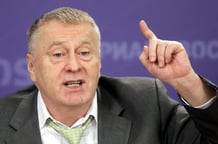
The Emir of Qatar, Sheikh Tamim bin Hamad Al Thani, called on Tuesday for continuing dialogue with the “Taliban” movement and Iran, and the establishment of a Palestinian state, in addition to ending the Syrian crisis through a peaceful solution.
This came in a speech during the 76th session of the United Nations General Assembly in New York, in the presence of more than 100 leaders and heads of state, and it is the first meeting since the start of the “Corona” pandemic.
Al-Thani said: “The international community must continue the dialogue with the Taliban, separate humanitarian aid from the political tracks in Afghanistan, protect civilians and respect human rights.”
Last August, the “Taliban” took control of Afghanistan, paralleling the final stage of a US military withdrawal that was completed at the end of that month.
And he added: “Firstly, the Afghan people of all sects, and secondly the international community, have the responsibility to work (…) to achieve a comprehensive political settlement.”
He added that “the issue in Afghanistan is neither victory nor defeat, but rather the failure of the process of imposing a political system from the outside, and regardless of the intentions, efforts, and money invested, this experience collapsed after twenty years.”
In 2001, an international military coalition led by Washington overthrew the rule of the “Taliban”, because it was linked at the time to the “Al-Qaeda” organization, which adopted attacks in the United States, in September of that year.
Differences and differences with Iran
Regarding Iran, Al-Thani said that “there is no solution to differences and differences in viewpoints with Iran except through rational dialogue on the basis of mutual respect.”
Gulf countries, led by Saudi Arabia, accuse Iran of having an expansionist agenda in the region and of interfering in the internal affairs of Arab countries, including Yemen and Lebanon, which Tehran denies, and says it is committed to good neighborly relations.
He added, “This (the necessity of dialogue) applies to the issue of returning to the nuclear agreement with Iran, and I do not think that anyone has an alternative to this approach, including those who oppose returning to the agreement.”
The United States, Britain, France, China, Russia and Germany are in talks with Iran to revive a nuclear agreement it signed in 2015, which Washington withdrew from in 2018, which imposes restrictions on Iran’s nuclear program in exchange for lifting international obstacles.
The centrality of the Palestinian cause
Al-Thani touched on the Palestinian issue, saying: “The issue of (Israel) deportation of the people (neighborhoods) of Sheikh Jarrah and Silwan (in occupied Jerusalem), the recent storming of Al-Aqsa Mosque by settlers, and the angry Palestinian, Arab and international popular reactions, reaffirm the centrality of the issue. Palestinians, and there is no way to circumvent them.
And he added, “This year has witnessed numerous Israeli violations in occupied East Jerusalem, repeated attacks on Islamic and Christian sanctities, especially the Temple Mount during the holy month of Ramadan, and the seizure of Palestinian homes in the context of the policies of Judaization and settlement.”
He stressed that “the international community bears the responsibility to achieve a comprehensive and just peace settlement of the Palestinian issue by establishing a Palestinian state on the 1967 borders, with East Jerusalem as its capital, alongside the State of Israel, ending the occupation of Arab lands, and a just solution to the refugee issue.”
He added, “As a result of this continuous procrastination, it appears from time to time that the Palestinian issue can be marginalized on the international agenda, or that a deeply rooted national issue can be circumvented by putting forward ideas such as improving the economic situation of the population under occupation instead of removing the occupation.”
On September 12, Israeli Foreign Minister Yair Lapid announced that Tel Aviv was working on an economic plan to improve conditions in the Gaza Strip in exchange for security.
More than two million Palestinians live in Gaza, suffering from extremely deteriorating living conditions; As a result of the continuous Israeli blockade of the Strip, since the Islamic Resistance Movement (Hamas) won the legislative elections in 2006.
Ending the Syrian crisis
On Syria, Al-Thani said: “A decade has passed since the crisis in Syria, which began with a peaceful uprising and turned into a humanitarian disaster due to the war. the threat of terrorism.”
He continued, “It is not permissible to neglect the Syrian issue, nor should the international community turn its back on the suffering of the Syrian people, as happened recently during the bombing of (Bashar al-Assad’s regime) the city of Daraa (south – the cradle of the uprising) and others.”
He called on the international community to “redouble its efforts to end this crisis, through a peaceful solution in accordance with the Geneva 1 Declaration, implement Security Council Resolution 2254 with all its components, and preserve Syria’s regional and national unity, sovereignty and independence.”
In 2011, popular protests erupted in Syria demanding the start of a peaceful transfer of power, but the regime deliberately suppressed it militarily, which pushed the country into a devastating war.












